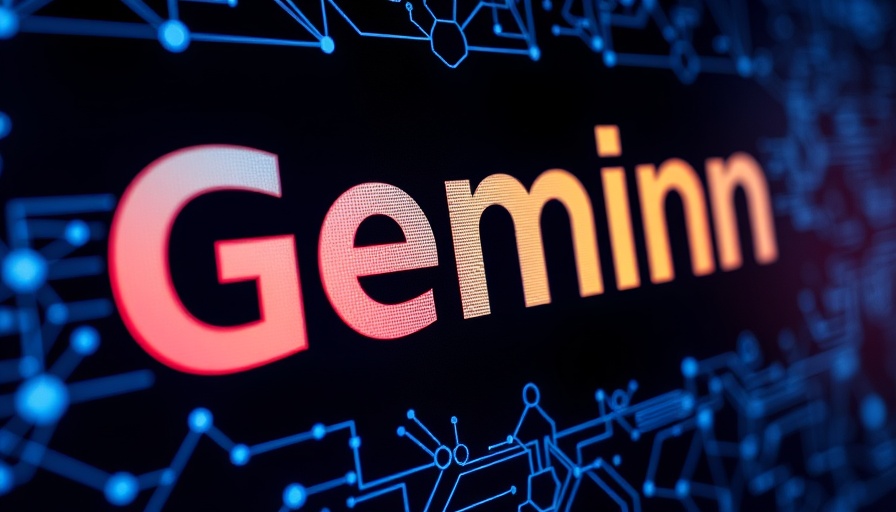
The Rise of AI Connection Standards
In the rapidly evolving world of artificial intelligence, standards are essential for ensuring smooth interoperability between various models and data sources. Recently, Google announced plans to adopt Anthropic's Model Context Protocol (MCP), a move that signifies a shift towards more open standards in connecting AI systems to diverse data pools. This comes only weeks after OpenAI made a similar commitment, highlighting an industry-wide recognition of the need for cohesiveness among competing AI platforms.
Understanding Model Context Protocol (MCP)
MCP is designed to facilitate two-way communication between AI models and the data they rely on, enabling models to connect to business tools, software, and content repositories. By integrating MCP, developers can create applications that can effectively draw data when needed, thus enhancing the capabilities of AI applications such as chatbots and other user-interactive tools. This flexible framework empowers organizations to streamline workflows and optimize their operational efficiency, fostering the development of intelligent agents capable of performing complex tasks.
Implications for Developers and Businesses
The adoption of MCP will likely pave the way for new opportunities, making it easier for developers to expose data via MCP servers. Applications built as MCP clients can connect to these servers as needed, creating a robust ecosystem for AI functionality. Companies already embracing this standard include Block, Apollo, and various development platforms, displaying a willingness within the tech community to prioritize collaboration over competition. This shift could lower barriers for new developers entering the AI space, facilitating innovation and accelerating product development.
A Cautionary Note on Standardization
While adopting a unified protocol like MCP offers significant benefits, it also raises critical questions about governance and control in AI development. As more companies align to a single protocol, there is a risk of creating a monopoly over how AI models interact with data. By recognizing these risks, stakeholders can advocate for transparent and ethical practices throughout implementation, ensuring diverse contributions to future AI frameworks.
Future Predictions and Trends in AI Interaction
The shift towards open standards like MCP is likely just the beginning. As technology evolves, we may witness further standardizations that enhance interoperability and transparency within AI development. Continued collaboration between tech giants and smaller companies may lead to a more decentralized approach, where the innovation is driven through cooperative engagements rather than competition alone. The future will require not just advancements in technology but ongoing conversations about ethical concerns, data privacy, and equitable access.
Conclusion: Embracing Change
As the tech industry collectively embraces protocols like MCP, developers and businesses alike stand to gain significantly from improved AI applications. These developments signal a shift towards more open, effective collaboration in AI functionalities, which could ultimately enhance user experiences across various digital interfaces. For organizations looking to stay ahead, keeping abreast of these changes and understanding their implications is essential.
Ultimately, staying informed about industry standards and practices will empower both developers and users to harness AI's full potential responsibly. It's a time ripe with opportunity, and embracing these changes could lead to innovations that redefine our interaction with technology.
 Add Row
Add Row  Add
Add 




Write A Comment